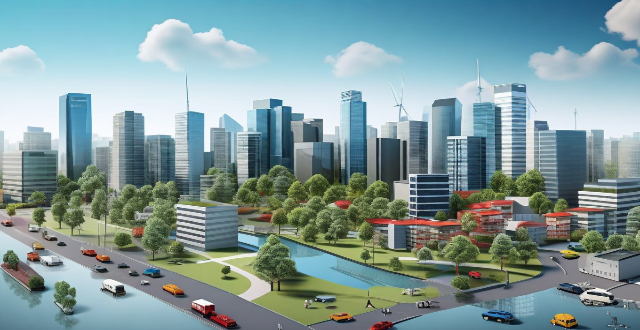Renewable energy solutions offer significant benefits for developing countries, including reduced energy costs, job creation, improved health and environmental quality, increased energy security, and climate change mitigation. By investing in renewable energy infrastructure, these countries can build more sustainable and prosperous futures for themselves and their citizens.

Introduction
Renewable energy solutions are becoming increasingly popular as a means of addressing the global energy crisis. Developing countries, in particular, have the potential to benefit greatly from implementing renewable energy solutions. In this article, we will explore how developing countries can benefit from implementing renewable energy solutions.
Benefits of Renewable Energy for Developing Countries
1. Reduced Energy Costs
One of the most significant benefits of renewable energy is that it reduces energy costs. Unlike fossil fuels, which are subject to price fluctuations and supply disruptions, renewable energy sources such as solar, wind, and hydropower are abundant and readily available. By investing in renewable energy infrastructure, developing countries can reduce their reliance on expensive imported fuels and enjoy lower energy costs over the long term.
2. Economic Growth and Job Creation
Another key benefit of renewable energy is that it creates jobs and stimulates economic growth. The renewable energy sector is rapidly expanding, and there is a growing demand for skilled workers in areas such as engineering, construction, and maintenance. By investing in renewable energy projects, developing countries can create new job opportunities and generate income for local communities.
3. Improved Health and Environmental Quality
Renewable energy sources are clean and do not produce harmful emissions or pollutants. By transitioning to renewable energy, developing countries can improve air quality and reduce health risks associated with traditional forms of energy production. Additionally, renewable energy projects often involve the use of sustainable materials and practices, further reducing environmental impact.
4. Increased Energy Security
Renewable energy sources are domestically produced and therefore less vulnerable to external factors such as political instability or supply disruptions. By investing in renewable energy infrastructure, developing countries can increase their energy security and reduce their dependence on foreign oil and gas suppliers.
5. Climate Change Mitigation
Finally, renewable energy is an important tool for mitigating climate change. By reducing greenhouse gas emissions and transitioning away from fossil fuels, developing countries can play a critical role in combating global warming and protecting the planet for future generations.
Conclusion
In conclusion, developing countries have much to gain from implementing renewable energy solutions. By reducing energy costs, creating jobs, improving health and environmental quality, increasing energy security, and mitigating climate change, these countries can build more sustainable and prosperous futures for themselves and their citizens. As the world continues to shift towards renewable energy, it is essential that developing countries take advantage of these opportunities and invest in a clean energy future.